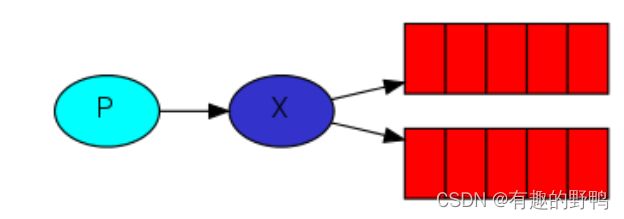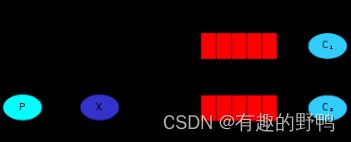- 乾坤微前端框架详细使用大全
不知名靓仔
前端框架
引言乾坤微前端框架(Qiankun)是一款轻量级的微前端解决方案,它基于JavaScript的Proxy特性和WebComponents技术,提供了一套简单易用的微前端实现方案。本文将详细介绍乾坤微前端框架的安装、配置、使用方法及常见问题解答,帮助开发者快速上手乾坤微前端框架。1.乾坤简介1.1什么是乾坤?乾坤是一个轻量级的微前端框架,旨在帮助开发者轻松实现微前端架构。它通过主应用(MainApp
- 牛客_计算器(二)
d3y1
java开发语言
计算器(二)https://www.nowcoder.com/practice/a9c170bfaf7349e3acb475d786ab1c7dimportjava.util.*;/***NC241计算器(二)*@authord3y1*/publicclassSolution{/***代码中的类名、方法名、参数名已经指定,请勿修改,直接返回方法规定的值即可***@paramsstring字符串*@
- PDF处理控件Spire.PDF教程:在Java中读取PDF,提取文本、图片和表格
CodeCraft Studio
pdfjava国产化Spire.pdf文档处理
在数据驱动的现代开发中,高效处理PDF文档已成为Java开发者不可或缺的核心能力。无论是处理各类发票扫描件、业务分析报告,还是包含丰富图表的技术文档,掌握Java版的PDF解析技术都将大幅提升数据处理效率,充分释放文档中的商业价值。本指南将介绍如何使用Spire.PDFforJava读取PDF文档,涵盖从可搜索的PDF提取文本、表格和图片,以及通过OCR技术从扫描版PDF中读取文本。Spire.P
- 企业级图表方案AG Charts v12正式发布:全新功能提升图表交互体验与开发效率
AGGrid成立于英国,致力于提供优秀的企业级数据表格及图表解决方案。AGGrid及AGCharts是其两大主要的高性能企业级JavaScript数据表格及图表解决方案,被全球开发者广泛采用。广泛应用于金融、电信、制造等行业,支持Angular、React、Vue和纯JavaScript项目,拥有企业级的性能与功能深度,凭借其卓越的性能、丰富的功能与高度可定制性,成为构建复杂数据驱动型应用的优选工
- PPT处理控件Aspose.Slides教程:在 PowerPoint 文件中创建 3D 形状
CodeCraft Studio
3D/2DCAD文档管理powerpoint3dpython
概述在PowerPoint文件中创建3D形状可以显著增强演示文稿的视觉吸引力。此功能对于建筑、教育和设计等以视觉表现为关键的行业至关重要。通过使用Aspose.SlidesforJava,开发人员可以轻松地将3D模型渲染集成到他们的应用程序中。该库以其灵活性和高级自定义选项而闻名,使其成为在PowerPoint中创建3D形状的理想选择。凭借其强大的功能,Aspose.SlidesforJava使开
- 领域驱动设计精要
MoneyHacksPro
Java场景面试宝典DDDDomain-DrivenDesignSoftwareArchitecture
我是廖志伟,一名Java开发工程师、《Java项目实战——深入理解大型互联网企业通用技术》(基础篇)、(进阶篇)、(架构篇)清华大学出版社签约作家、Java领域优质创作者、CSDN博客专家、阿里云专家博主、51CTO专家博主、产品软文专业写手、技术文章评审老师、技术类问卷调查设计师、幕后大佬社区创始人、开源项目贡献者。拥有多年一线研发和团队管理经验,研究过主流框架的底层源码(Spring、Spri
- 领域驱动设计实践精要
我是廖志伟,一名Java开发工程师、《Java项目实战——深入理解大型互联网企业通用技术》(基础篇)、(进阶篇)、(架构篇)清华大学出版社签约作家、Java领域优质创作者、CSDN博客专家、阿里云专家博主、51CTO专家博主、产品软文专业写手、技术文章评审老师、技术类问卷调查设计师、幕后大佬社区创始人、开源项目贡献者。拥有多年一线研发和团队管理经验,研究过主流框架的底层源码(Spring、Spri
- Spring框架核心技术解析
MoneyHacksPro
Java场景面试宝典SpringFrameworkDependencyInjectionAOP
我是廖志伟,一名Java开发工程师、《Java项目实战——深入理解大型互联网企业通用技术》(基础篇)、(进阶篇)、(架构篇)清华大学出版社签约作家、Java领域优质创作者、CSDN博客专家、阿里云专家博主、51CTO专家博主、产品软文专业写手、技术文章评审老师、技术类问卷调查设计师、幕后大佬社区创始人、开源项目贡献者。拥有多年一线研发和团队管理经验,研究过主流框架的底层源码(Spring、Spri
- ShardingSphere解析
MoneyHacksPro
Java场景面试宝典ShardingSphereDistributedDatabasesDatabaseSharding
我是廖志伟,一名Java开发工程师、《Java项目实战——深入理解大型互联网企业通用技术》(基础篇)、(进阶篇)、(架构篇)清华大学出版社签约作家、Java领域优质创作者、CSDN博客专家、阿里云专家博主、51CTO专家博主、产品软文专业写手、技术文章评审老师、技术类问卷调查设计师、幕后大佬社区创始人、开源项目贡献者。拥有多年一线研发和团队管理经验,研究过主流框架的底层源码(Spring、Spri
- 领域驱动设计(DDD)实践精要
MoneyHacksPro
Java场景面试宝典DDDDomain-DrivenDesignSoftwareArchitecture
我是廖志伟,一名Java开发工程师、《Java项目实战——深入理解大型互联网企业通用技术》(基础篇)、(进阶篇)、(架构篇)清华大学出版社签约作家、Java领域优质创作者、CSDN博客专家、阿里云专家博主、51CTO专家博主、产品软文专业写手、技术文章评审老师、技术类问卷调查设计师、幕后大佬社区创始人、开源项目贡献者。拥有多年一线研发和团队管理经验,研究过主流框架的底层源码(Spring、Spri
- 一名工作8年Java开发的技术博主求职经历
MoneyHacksPro
java
本次会议主要分享了2025年3月至4月中旬的求职经历,求职者通过投递简历、调整期望薪资、优化简历等方式寻找工作,但初期未获得面试机会。求职者通过创建“包皮公司”进行模拟面试,了解市场行情并调整自身定位,最终在4月中旬获得两家公司的面试机会并成功入职。求职者总结了简历优化、面试技巧、市场行情分析等经验,强调在求职过程中需根据实际情况灵活调整策略,并注重差异化竞争。——————————————————
- Hadoop MapReduce 入门
一、Hadoop3.0.4环境准备1.环境要求Java8(Hadoop3.0.4不支持Java11+)单节点或多节点Linux系统(推荐Ubuntu18.04+)至少4GB内存(建议8GB+)50GB以上磁盘空间2.安装Java#安装Java8sudoapt-getinstallopenjdk-8-jdk#验证安装java-version3.下载与安装Hadoop3.0.4#下载Hadoop3.0
- springboot3.x中集成springdoc-openapi
恋上钢琴的虫
springspringbootjava
springdoc-openapi简介springdoc-openapijava库有助于使用springboot项目自动生成API文档。之前项目组一直用的Swagger库,一方面官方一直不更新,另一方面在SpringBoot升级到3.0.x之后SpringFox也是无法继续支持Swagger了,对此官方给出的建议是用另一种接口文档解决方案SpringDoc1、在pom.xml中引入SpringDo
- 【大厂面试题】千万级大表如何快速删除大量数据
CBeann
【面试题】【架构&案例】【MySQL】java开源springjvmmysql大厂面试题
-作者简介:大厂高级Java开发工程师-称号:CSDN博客专家✨、阿里云博客专家-公众号:云服务小管家。免费的阿里云服务器☁和云环境直接使用-生活:专注于后端技术分享迷茫时可来瞅瞅码农轨迹♂️-服务:提供模拟面试和简历辅导,提供生产项目。内推可私信✉-卷卷群:可以和大家一起学习,一起进步-如果感觉博主的文章还不错的话,请三连支持一下博主哦背景最近在做一个项目,除了验证功能,还需要验证性能,所以前
- Javascript基础内容回顾—变量提升、事件循环和闭包等内容
GISer_Jinger
javascript前端
以下是前端面试中JavaScript基础易错问题的详解,结合常见考点和易混淆概念进行解析:⚠️一、变量作用域与提升varvslet/const◦变量提升:var声明的变量会提升到作用域顶部(值为undefined),而let/const存在暂时性死区(声明前访问报错)。◦循环陷阱:for(vari=0;iconsole.log(i));//输出3,3,3(共享同一作用域)}for(leti=0;i
- 附上java下载excel完整实现代码
importcom.alibaba.excel.EasyExcel;importcom.alibaba.excel.ExcelWriter;importcom.alibaba.excel.write.metadata.WriteSheet;importcom.alibaba.excel.write.metadata.fill.FillConfig;importcom.qhsm.airportexp
- 前端开发常见问题(从布局到性能优化)
白仑色
前端系列前端开发HTMLCSSJavaScript性能优化响应式布局跨域
前端开发作为连接用户与产品的重要桥梁,涉及HTML、CSS和JavaScript的综合运用。但在实际开发过程中,开发者常常会遇到各种“坑”,比如页面布局异常、跨域请求失败、性能瓶颈、浏览器兼容性差等问题。本文将围绕前端开发中常见的十大问题展开讲解:页面布局相关问题(盒模型、浮动、Flex布局)CSS样式冲突与继承JavaScript异步处理(Promise、async/await)跨域问题及解决方
- Spring MVC 框架解析
Java廖志伟
Java场景面试宝典SpringMVCWebDevelopmentFrameworkJavaWebApplications
我是廖志伟,一名Java开发工程师、《Java项目实战——深入理解大型互联网企业通用技术》(基础篇)、(进阶篇)、(架构篇)清华大学出版社签约作家、Java领域优质创作者、CSDN博客专家、阿里云专家博主、51CTO专家博主、产品软文专业写手、技术文章评审老师、技术类问卷调查设计师、幕后大佬社区创始人、开源项目贡献者。拥有多年一线研发和团队管理经验,研究过主流框架的底层源码(Spring、Spri
- JVM与Spring Boot核心解析
Java廖志伟
Java场景面试宝典JavaJVMPerformanceOptimization
我是廖志伟,一名Java开发工程师、《Java项目实战——深入理解大型互联网企业通用技术》(基础篇)、(进阶篇)、(架构篇)清华大学出版社签约作家、Java领域优质创作者、CSDN博客专家、阿里云专家博主、51CTO专家博主、产品软文专业写手、技术文章评审老师、技术类问卷调查设计师、幕后大佬社区创始人、开源项目贡献者。拥有多年一线研发和团队管理经验,研究过主流框架的底层源码(Spring、Spri
- Spring MVC 架构解析
Java廖志伟
Java场景面试宝典SpringMVCWebDevelopmentJavaFrameworks
我是廖志伟,一名Java开发工程师、《Java项目实战——深入理解大型互联网企业通用技术》(基础篇)、(进阶篇)、(架构篇)清华大学出版社签约作家、Java领域优质创作者、CSDN博客专家、阿里云专家博主、51CTO专家博主、产品软文专业写手、技术文章评审老师、技术类问卷调查设计师、幕后大佬社区创始人、开源项目贡献者。拥有多年一线研发和团队管理经验,研究过主流框架的底层源码(Spring、Spri
- web与Java代码保护:混淆、压缩及反编译工具详解
本文还有配套的精品资源,点击获取简介:为保障代码的安全性和保密性,IT行业中开发者采用代码混淆和压缩技术。本文将深入探讨web代码混淆压缩工具和Java代码反编译工具,解释它们的工作原理及应用。混淆工具如UglifyJS和Terser用于混淆JavaScript代码,使其难以理解;压缩工具如YUICompressor和GoogleClosureCompiler减小JavaScript和CSS文件的
- nvm:NodeJs版本管理工具下载安装与使用教程
天天打码
大前端javascriptnode.jsvue.js
nvm是什么nvm是一个node的版本管理工具,可以简单操作node版本的切换、安装、查看。。。等等,与npm不同的是,npm是依赖包的管理工具。nvm特点node:是一个基于ChromeV8引擎的JS运行环境。npm:是node.js默认的包管理系统(用JavaScript编写的),在安装的node的时候,npm也会跟着一起安装,管理node中的第三方插件。nvm:node版本管理器,也就是说:
- 深入理解 JavaScript/TypeScript 中的展开运算符(...)
ttod_qzstudio
TypeScriptJavaScriptjavascripttypescript开发语言
在JavaScript和TypeScript中,...运算符(称为展开运算符,英文SpreadOperator)是一个非常强大且常用的语法。它可以让代码更简洁、更灵活,适用于数组、对象、函数参数等多种场景。本文将详细介绍它的用法,并通过示例帮助你彻底掌握它。1.什么是展开运算符(...)?展开运算符...允许将一个可迭代对象(如数组、字符串、Set、Map等)“展开”成独立的元素。它的核心作用是解
- 数据库sql转Java实体类
大诚子
工作记录javasql实体类
//功能不是很完善,自动生成以后,没有转换成小驼峰格式,待完善......packagecom.bookingctrip.api.manual.utils;importjava.io.File;importjava.io.FileWriter;importjava.io.IOException;importjava.io.PrintWriter;importjava.sql.Connection;
- (转)java.sql包介绍
数据库连接包:实现JDBC的类库;DriverManager类此类用于装载驱动程序,它所有的成员都是静态成员,所以在程序中无须对它进行实例化,直接通过类名就可以访问它。DriverManager类是JDBC的管理层,作用于用户和驱动程序间加载驱动程序Class.forName(“公司名.数据库名.驱动程序名”)如:Class.forName(“sun.jdbc.odbc.jdbcOdbcDrive
- 开发效率翻倍!一键将 JSON 转换成 Java 实体类的神器来了!
A__tao
java
开发效率翻倍!一键将JSON转换成Java实体类的神器来了!在开发Java后端接口时,你是否常常面对这样的烦恼:拿到前端传来的JSON,字段多到眼花缭乱手动敲JavaBean,字段写漏、类型搞错嵌套结构太复杂,写起来痛苦又低效别担心,这些问题通通可以交给它来解决:JSON转Java实体类在线工具为什么推荐这个工具?这个工具由资深开发者打造,功能聚焦于一件事:把你的JSON一键生成JavaBean,
- 探究 Java SPI 原理与实战_打造高扩展性的应用架构
随风九天
javajava架构开发语言JavaSPI
1.引言1.1为什么需要模块化与扩展性设计在大型软件系统中,良好的架构设计是至关重要的。模块化和可扩展性设计使得我们能够:将功能划分为独立的模块;在不修改原有代码的前提下引入新功能;实现松耦合、高内聚的设计目标。Java提供了多种机制来支持这种设计,其中SPI(ServiceProviderInterface)是一种轻量级的服务发现机制,广泛用于构建插件化系统。1.2Java中的常见扩展机制概述扩
- 一键将 SQL 转为 Java 实体类,全面支持 MySQL / PostgreSQL / Oracle!
A__tao
sqljavamysql
一键将SQL表结构转为Java实体类,全面支持MySQL/PostgreSQL/Oracle!还在手动根据SQL表结构去写Java实体类?字段一个个敲、类型一个个改、注释一个个补,既浪费时间又容易出错!现在,一款强大而简洁的开发神器来了:SQL转Java实体类在线工具(支持MySQL、PostgreSQL、Oracle)适用人群Java后端开发工程师数据库表结构设计者ORM模型搭建者(如Hiber
- MySQL(118)如何使用SSL进行加密连接?
使用SSL进行加密连接可以有效地保护数据在传输过程中的安全性,防止数据被窃取或篡改。下面我们将详细介绍如何在Java应用中使用SSL与MySQL数据库建立加密连接。一.准备工作在开始之前,请确保你已经安装了MySQL,并且有Java开发环境(如JDK和Maven)。二.生成SSL证书生成自签名证书:你可以使用OpenSSL工具来生成自签名证书。以下是生成CA证书、服务器证书和客户端证书的步骤。#生
- 6,Receiving Messages:@KafkaListener Annotation
@KafkaListener注释用于将bean方法指定为侦听器容器的侦听器。bean被包装在一个配置了各种功能的MessagingMessageListenerAdapter中,例如在必要时转换数据以匹配方法参数的转换器。您可以使用#{…}或属性占位符(${…})使用SpEL配置注释上的大多数属性。有关更多信息,请参阅Javadoc。RecordListeners@KafkaListener注释为
- 二分查找排序算法
周凡杨
java二分查找排序算法折半
一:概念 二分查找又称
折半查找(
折半搜索/
二分搜索),优点是比较次数少,查找速度快,平均性能好;其缺点是要求待查表为有序表,且插入删除困难。因此,折半查找方法适用于不经常变动而 查找频繁的有序列表。首先,假设表中元素是按升序排列,将表中间位置记录的关键字与查找关键字比较,如果两者相等,则查找成功;否则利用中间位置记录将表 分成前、后两个子表,如果中间位置记录的关键字大于查找关键字,则进一步
- java中的BigDecimal
bijian1013
javaBigDecimal
在项目开发过程中出现精度丢失问题,查资料用BigDecimal解决,并发现如下这篇BigDecimal的解决问题的思路和方法很值得学习,特转载。
原文地址:http://blog.csdn.net/ugg/article/de
- Shell echo命令详解
daizj
echoshell
Shell echo命令
Shell 的 echo 指令与 PHP 的 echo 指令类似,都是用于字符串的输出。命令格式:
echo string
您可以使用echo实现更复杂的输出格式控制。 1.显示普通字符串:
echo "It is a test"
这里的双引号完全可以省略,以下命令与上面实例效果一致:
echo Itis a test 2.显示转义
- Oracle DBA 简单操作
周凡杨
oracle dba sql
--执行次数多的SQL
select sql_text,executions from (
select sql_text,executions from v$sqlarea order by executions desc
) where rownum<81;
&nb
- 画图重绘
朱辉辉33
游戏
我第一次接触重绘是编写五子棋小游戏的时候,因为游戏里的棋盘是用线绘制的,而这些东西并不在系统自带的重绘里,所以在移动窗体时,棋盘并不会重绘出来。所以我们要重写系统的重绘方法。
在重写系统重绘方法时,我们要注意一定要调用父类的重绘方法,即加上super.paint(g),因为如果不调用父类的重绘方式,重写后会把父类的重绘覆盖掉,而父类的重绘方法是绘制画布,这样就导致我们
- 线程之初体验
西蜀石兰
线程
一直觉得多线程是学Java的一个分水岭,懂多线程才算入门。
之前看《编程思想》的多线程章节,看的云里雾里,知道线程类有哪几个方法,却依旧不知道线程到底是什么?书上都写线程是进程的模块,共享线程的资源,可是这跟多线程编程有毛线的关系,呜呜。。。
线程其实也是用户自定义的任务,不要过多的强调线程的属性,而忽略了线程最基本的属性。
你可以在线程类的run()方法中定义自己的任务,就跟正常的Ja
- linux集群互相免登陆配置
林鹤霄
linux
配置ssh免登陆
1、生成秘钥和公钥 ssh-keygen -t rsa
2、提示让你输入,什么都不输,三次回车之后会在~下面的.ssh文件夹中多出两个文件id_rsa 和 id_rsa.pub
其中id_rsa为秘钥,id_rsa.pub为公钥,使用公钥加密的数据只有私钥才能对这些数据解密 c
- mysql : Lock wait timeout exceeded; try restarting transaction
aigo
mysql
原文:http://www.cnblogs.com/freeliver54/archive/2010/09/30/1839042.html
原因是你使用的InnoDB 表类型的时候,
默认参数:innodb_lock_wait_timeout设置锁等待的时间是50s,
因为有的锁等待超过了这个时间,所以抱错.
你可以把这个时间加长,或者优化存储
- Socket编程 基本的聊天实现。
alleni123
socket
public class Server
{
//用来存储所有连接上来的客户
private List<ServerThread> clients;
public static void main(String[] args)
{
Server s = new Server();
s.startServer(9988);
}
publi
- 多线程监听器事件模式(一个简单的例子)
百合不是茶
线程监听模式
多线程的事件监听器模式
监听器时间模式经常与多线程使用,在多线程中如何知道我的线程正在执行那什么内容,可以通过时间监听器模式得到
创建多线程的事件监听器模式 思路:
1, 创建线程并启动,在创建线程的位置设置一个标记
2,创建队
- spring InitializingBean接口
bijian1013
javaspring
spring的事务的TransactionTemplate,其源码如下:
public class TransactionTemplate extends DefaultTransactionDefinition implements TransactionOperations, InitializingBean{
...
}
TransactionTemplate继承了DefaultT
- Oracle中询表的权限被授予给了哪些用户
bijian1013
oracle数据库权限
Oracle查询表将权限赋给了哪些用户的SQL,以备查用。
select t.table_name as "表名",
t.grantee as "被授权的属组",
t.owner as "对象所在的属组"
- 【Struts2五】Struts2 参数传值
bit1129
struts2
Struts2中参数传值的3种情况
1.请求参数绑定到Action的实例字段上
2.Action将值传递到转发的视图上
3.Action将值传递到重定向的视图上
一、请求参数绑定到Action的实例字段上以及Action将值传递到转发的视图上
Struts可以自动将请求URL中的请求参数或者表单提交的参数绑定到Action定义的实例字段上,绑定的规则使用ognl表达式语言
- 【Kafka十四】关于auto.offset.reset[Q/A]
bit1129
kafka
I got serveral questions about auto.offset.reset. This configuration parameter governs how consumer read the message from Kafka when there is no initial offset in ZooKeeper or
- nginx gzip压缩配置
ronin47
nginx gzip 压缩范例
nginx gzip压缩配置 更多
0
nginx
gzip
配置
随着nginx的发展,越来越多的网站使用nginx,因此nginx的优化变得越来越重要,今天我们来看看nginx的gzip压缩到底是怎么压缩的呢?
gzip(GNU-ZIP)是一种压缩技术。经过gzip压缩后页面大小可以变为原来的30%甚至更小,这样,用
- java-13.输入一个单向链表,输出该链表中倒数第 k 个节点
bylijinnan
java
two cursors.
Make the first cursor go K steps first.
/*
* 第 13 题:题目:输入一个单向链表,输出该链表中倒数第 k 个节点
*/
public void displayKthItemsBackWard(ListNode head,int k){
ListNode p1=head,p2=head;
- Spring源码学习-JdbcTemplate queryForObject
bylijinnan
javaspring
JdbcTemplate中有两个可能会混淆的queryForObject方法:
1.
Object queryForObject(String sql, Object[] args, Class requiredType)
2.
Object queryForObject(String sql, Object[] args, RowMapper rowMapper)
第1个方法是只查
- [冰川时代]在冰川时代,我们需要什么样的技术?
comsci
技术
看美国那边的气候情况....我有个感觉...是不是要进入小冰期了?
那么在小冰期里面...我们的户外活动肯定会出现很多问题...在室内呆着的情况会非常多...怎么在室内呆着而不发闷...怎么用最低的电力保证室内的温度.....这都需要技术手段...
&nb
- js 获取浏览器型号
cuityang
js浏览器
根据浏览器获取iphone和apk的下载地址
<!DOCTYPE html>
<html>
<head>
<meta charset="utf-8" content="text/html"/>
<meta name=
- C# socks5详解 转
dalan_123
socketC#
http://www.cnblogs.com/zhujiechang/archive/2008/10/21/1316308.html 这里主要讲的是用.NET实现基于Socket5下面的代理协议进行客户端的通讯,Socket4的实现是类似的,注意的事,这里不是讲用C#实现一个代理服务器,因为实现一个代理服务器需要实现很多协议,头大,而且现在市面上有很多现成的代理服务器用,性能又好,
- 运维 Centos问题汇总
dcj3sjt126com
云主机
一、sh 脚本不执行的原因
sh脚本不执行的原因 只有2个
1.权限不够
2.sh脚本里路径没写完整。
二、解决You have new mail in /var/spool/mail/root
修改/usr/share/logwatch/default.conf/logwatch.conf配置文件
MailTo =
MailFrom
三、查询连接数
- Yii防注入攻击笔记
dcj3sjt126com
sqlWEB安全yii
网站表单有注入漏洞须对所有用户输入的内容进行个过滤和检查,可以使用正则表达式或者直接输入字符判断,大部分是只允许输入字母和数字的,其它字符度不允许;对于内容复杂表单的内容,应该对html和script的符号进行转义替换:尤其是<,>,',"",&这几个符号 这里有个转义对照表:
http://blog.csdn.net/xinzhu1990/articl
- MongoDB简介[一]
eksliang
mongodbMongoDB简介
MongoDB简介
转载请出自出处:http://eksliang.iteye.com/blog/2173288 1.1易于使用
MongoDB是一个面向文档的数据库,而不是关系型数据库。与关系型数据库相比,面向文档的数据库不再有行的概念,取而代之的是更为灵活的“文档”模型。
另外,不
- zookeeper windows 入门安装和测试
greemranqq
zookeeper安装分布式
一、序言
以下是我对zookeeper 的一些理解: zookeeper 作为一个服务注册信息存储的管理工具,好吧,这样说得很抽象,我们举个“栗子”。
栗子1号:
假设我是一家KTV的老板,我同时拥有5家KTV,我肯定得时刻监视
- Spring之使用事务缘由(2-注解实现)
ihuning
spring
Spring事务注解实现
1. 依赖包:
1.1 spring包:
spring-beans-4.0.0.RELEASE.jar
spring-context-4.0.0.
- iOS App Launch Option
啸笑天
option
iOS 程序启动时总会调用application:didFinishLaunchingWithOptions:,其中第二个参数launchOptions为NSDictionary类型的对象,里面存储有此程序启动的原因。
launchOptions中的可能键值见UIApplication Class Reference的Launch Options Keys节 。
1、若用户直接
- jdk与jre的区别(_)
macroli
javajvmjdk
简单的说JDK是面向开发人员使用的SDK,它提供了Java的开发环境和运行环境。SDK是Software Development Kit 一般指软件开发包,可以包括函数库、编译程序等。
JDK就是Java Development Kit JRE是Java Runtime Enviroment是指Java的运行环境,是面向Java程序的使用者,而不是开发者。 如果安装了JDK,会发同你
- Updates were rejected because the tip of your current branch is behind
qiaolevip
学习永无止境每天进步一点点众观千象git
$ git push joe prod-2295-1
To
[email protected]:joe.le/dr-frontend.git
! [rejected] prod-2295-1 -> prod-2295-1 (non-fast-forward)
error: failed to push some refs to '
[email protected]
- [一起学Hive]之十四-Hive的元数据表结构详解
superlxw1234
hivehive元数据结构
关键字:Hive元数据、Hive元数据表结构
之前在 “[一起学Hive]之一–Hive概述,Hive是什么”中介绍过,Hive自己维护了一套元数据,用户通过HQL查询时候,Hive首先需要结合元数据,将HQL翻译成MapReduce去执行。
本文介绍一下Hive元数据中重要的一些表结构及用途,以Hive0.13为例。
文章最后面,会以一个示例来全面了解一下,
- Spring 3.2.14,4.1.7,4.2.RC2发布
wiselyman
Spring 3
Spring 3.2.14、4.1.7及4.2.RC2于6月30日发布。
其中Spring 3.2.1是一个维护版本(维护周期到2016-12-31截止),后续会继续根据需求和bug发布维护版本。此时,Spring官方强烈建议升级Spring框架至4.1.7 或者将要发布的4.2 。
其中Spring 4.1.7主要包含这些更新内容。

